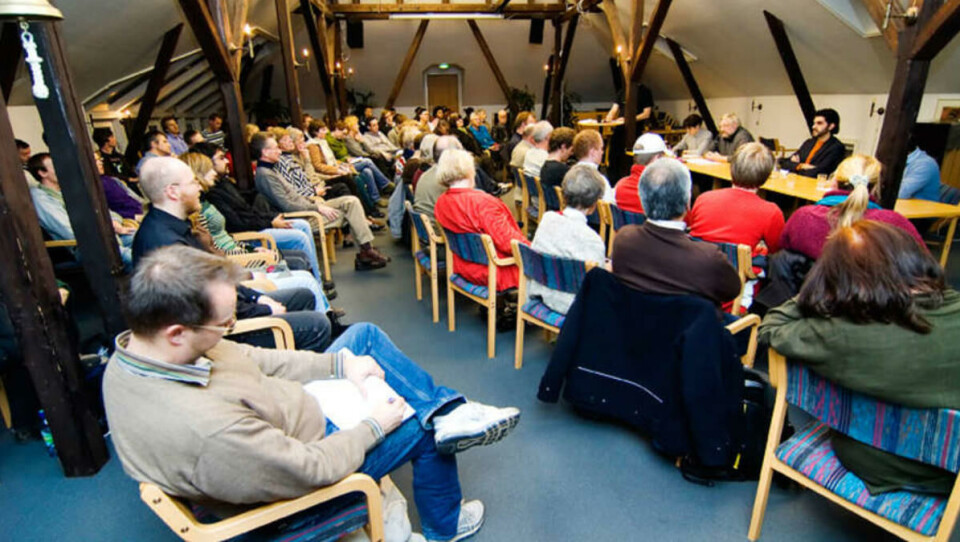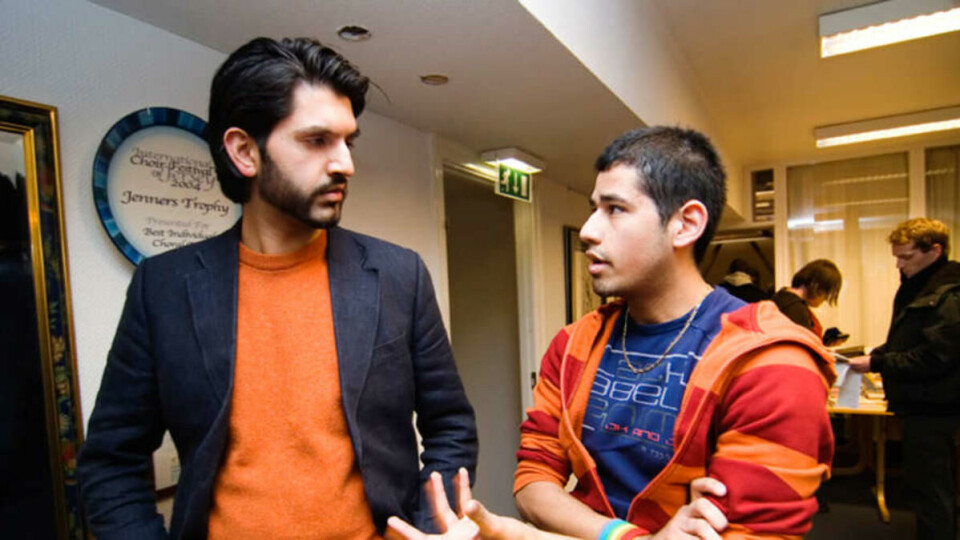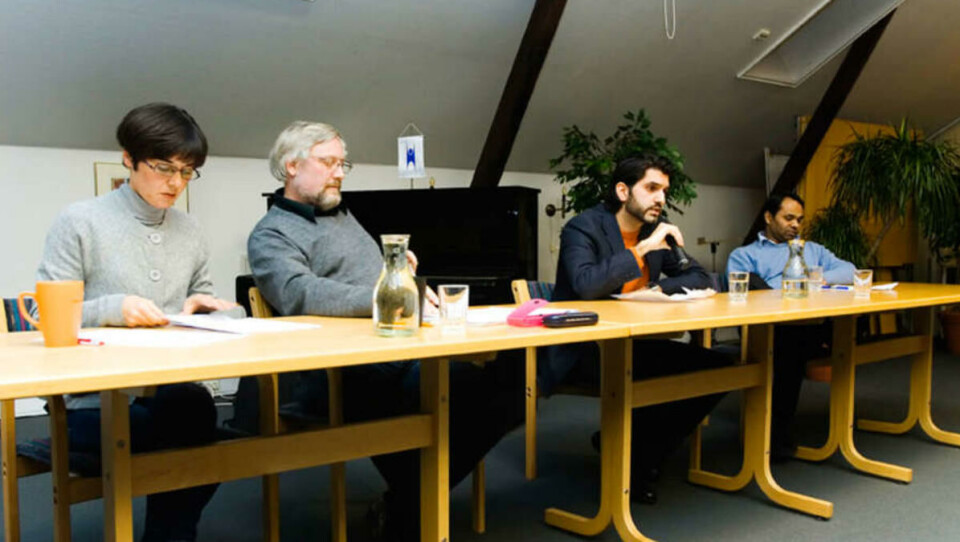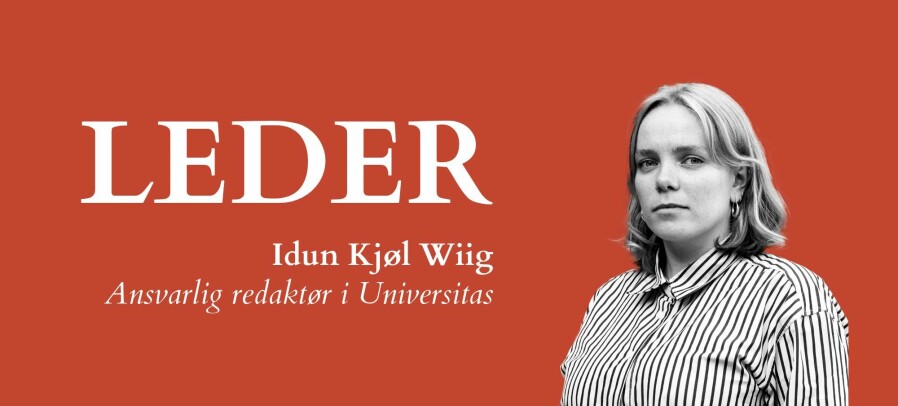

Heated debate on homosexuality and Islam
According to President of the Muslim Student Union, Usman Rana, Islam expects Muslims to respect all people. Nevertheless, he thinks it would be unpopular if a gay person were to run for election of the board of MSS.

DEBATE: – Homosexual practise is without a doubt a sin in Islam theology. No matter how you look at it, the Koran and the other holy texts are crystal clear on this point. Selective interpretation of the texts cannot be understood as Islam, Usman Rana says.
Last Wednesday, the student union for gay students at the University of Oslo, Skeivt Forum, organised a debate on theology and praxis.
Rana is the President of the Muslim Student Union (MSS) and he emphasises that Islam hates sin, but respects the sinner.
– No one should single out or discriminate homosexuals in a way that makes them feel slighted, he says.
Vice-President in Skeivt Forum, Andrès Lekanger, was the originator of the debate and he has strong opinions on Rana’s views.
– I am surprised that Rana declares that Islam should not harm anyone, and yet he does not acknowledge that a religion which does not accept people who are homosexual does just that. It is very disappointing and people are suffering from it, he adds.
Still, Lekanger is happy that MSS will take part in the debate.
– Uses the Koran as an excuse
Very few Muslims dear to come out as homosexuals in Norway. Mansour Saberi, gay activist and originally from Iran, believes that it is the community that often decides how hard it is to come out as a homosexual.
– A lot of people live openly as gay in Norway, but for those who come from conservative families where Islam is interpreted in a very traditional and literally way it can be extremely hard to come out, says Saberi who has been living openly as gay for 20 years.
He says that it is very provocative how ignorant a lot of Muslim communities are.
– A lot of people use the Koran as an excuse to protect their own traditional, patriarchal attitudes without even knowing what the Koran says on these matters. There is a striking ignorance among Muslims and their teachings on sexuality and identity, he says, and adds that one solution to this problem would be if most people started reading and interpreting the Koran by themselves instead of listening to Islam scholars.
– Homosexuality unpopular in MSS
According to the statutes, MMS is open to all Muslims in Norway. However, as far as Rana knows there are no openly gay members. Rana emphasises that the statutes does not mention homosexuality.
– Does that mean that a gay Muslim could become member of the Board of MSS?
– That would be up to the general meeting to decide. But to be honest it would be very unpopular if that were to happen, and I don’t think it will, he says.
Lekanger encourages MSS to make it clear that you can respect someone even if you don’t agree with them. Rana on the other side says that MSS has been doing just that all along, for instance by joining in on debates, writing a feature article in Universitas and even working with a gay priest at BI.
Rana explains that the essence in Islam is submission and peace, and is convinced that the Koran and the holy texts are crystal clear when it comes to homosexuality.
– Not politically correct
Chairman of the board of Oslo Kristelige Studentforening (OKSF), Ingrid B. Melve emphasises that she does not consider homosexuality a sin, and that she believes the work against discrimination and prejudice to be part of the virtue of charity.
– To live the life you want and to accept the person you are should be a given, Melve says, and adds that the texts in the Christian Bible should be interpreted in a way that can be applied to today’s world.
Rana, however, points out that in Islam there is no need to democratise the theology or to be politically correct.
– Islam teaches us that humans are intellectual beings capable to control their temptations and desires. We do not have to succumb to primitive behaviour, he says.
He explains that it was difficult to participate in the debate last week.
– It was challenging, but to participate in debates like this one is very important. We live in a liberal society, and so we must accept that people think differently about different matters, he adds.
– At the debate you personally disapproved of the death penalty for homosexuality, but you did not want to express your opinions on the legislation in other countries. What are your views on this?
– I disapprove of the death penalty for homosexuality, but I am not a theologian or an Islam scholar and so I will not answer to what they do in other countries. I am a Norwegian citizen and I act in accordance with Norwegian laws.
– Isn’t that a cowardly response since Norway condemns the death penalty?
– I don’t want to go any further into this question.
– Does this kind of debate create a negative or a more nuanced image of Islam?
– Unfortunately, there is a tendency in Norway to demean openly religious people. It is due to an extreme level of secularisation of the public. I hope that our participation can contribute to a more nuanced image of Islam. The Norwegian public needs a liberalisation.
Universitas also contacted Oslo Student Christian Fellowship (OKSL), but they did not want to comment on their views on homosexuality.

































